
Mindset Unlimited: Tips, Tools, and Inspiration for Women in a Time of Change
Your Mindset Unlimited is a podcast for women navigating professional and life transitions who are seeking to release learned limitations and build a more holistic, liberatory version of success.
Your Host, Valerie Friedlander, is an ICF certified coach, sociologist, intersectional feminist, artist, business owner, and mom. Based in Chicago and supporting clients world-wide, she helps high-achieving women transition into their next chapter of life with clarity, confidence, and self-compassion. lead with intention, and create their definition of success that honors all aspects of their life.
In this podcast you'll find tips, tools, and inspiration to help you release the internalized limitations cultivated by our social system imbalances and lead your life with more ease and joy.
Some of the topics you'll find here are: finding fulfillment, habit shifting, motivation, time management, money mindset, stress management, impostor syndrome, productivity, work/life balance, communication, boundaries, leadership, social activism, burnout, building a business, motherhood, and more.
You can find out about Valerie and her work at www.valeriefriedlander.com
Follow her on most social media @unlimitedcoachval
Sign up for her email list at www.valeriefriedlander.com/signup
Books referenced on the podcast can be found on Bookshop.org
https://bookshop.org/lists/unlimited-podcast-book-recommendations
Mindset Unlimited: Tips, Tools, and Inspiration for Women in a Time of Change
4 Bite-Size Mindset Shifts for Stressful Times
Bite size mindset shifts can make a big difference during stressful times to help you engage intentionally instead of reactively. Compassionate accountability helps us embrace our humanity while challenging our status quo. Here we’re focusing on simple, practical tools, and encouragement as we navigate these difficult times.
In this episode of Mindset Unlimited, I share some bite size mindset shifts for stressful times to help you show up in a sustainable way.
Some of what I explore in this episode includes:
- Consider how you talk to yourself – don’t let the times define you
- Changing how you think about taking action to stay purposeful and sustainable
- Overcoming overwhelm when things are really overwhelming
- Stay true to your moral compass and overcoming discomfort conditioning
Thanks for listening! Have thoughts or questions about this episode? Share them with me!
Send me a voice memo: https://www.speakpipe.com/MindsetUnlimited
LINKS TO REFERENCES MADE IN THIS EPISODE:
the restlab podcast with Jordan Maney: Rest So You Can Rage
CONNECT WITH VALERIE:
Sign up for Valerie’s newsletter
Apply to be coached on the podcast
This podcast was produced by Valerie Friedlander Coaching
Proud member of the Feminist Podcasters Collective
Hello, my friends, and welcome to a mini episode of Mindset unlimited. Mindset tips, tools and inspiration for women in a time of change. I'm your host. Valerie Friedlander, ICF certified coach, sociologist, intersectional feminist, truth seeker, artist, mom and nerd, and today we are talking about bite sized mindset shifts for stressful times you might be going but Valerie, you released an episode last week, and I would say, yes, yes, I did. That episode was actually out of schedule. I acknowledged in my newsletter the other week that I realized that I lost a week the episode that I did on flexible routines, and I talked a lot about all the things going on and why I decided to repurpose an episode, what I didn't realize when I did that was that I actually missed an entire week that episode went out a week after I would normally have sent a episode out. So one, I am not beating myself up over that. It is really important. And this is, this is not something that I've always done. It would have been a time when I would have spent a lot of time beating myself up over that mistake, I knew cognitively that just because you make a mistake doesn't make you a mistake, but I didn't really have that integrated. And so taking a moment to pause and go, You know what? It's okay. There are a lot of other really awful things happening in the world, and missing a week is not going to end at all. So let's check in, because those sorts of moments are a really good opportunity to check in and go, Okay, why am I doing a thing? What's important to me about it, and how do I want to show up in relationship to the error, because there's a reason it happened, and there's a way forward. So taking that moment to go, Okay, what do I want to do with this? And taking it in this case, I think, as an opportunity just even, just to reflect, even, just to acknowledge that I'm human, that things happen. And if you're someone who listens to other people, we're in this time of cult of personality. Not to say that I'm in any way part of a personality cult, but as someone who shares content, who has a platform out there, it may very well be that someone's like, Oh, she's so amazing, and thank you. Also human. So often we put people on pedestals and we don't allow them to be human. And I see this so much in the online world, where people are like, this content creator is amazing, and then they make a mistake, and it's like, take it down, and that doesn't allow any room for growth. So I'm gonna give myself grace. I am going to be an example to myself of that, and to you of doing that for yourself, because one of the things that I find is that I often judge other people really harshly when it's something that I'm judging myself for, and that's a way that I flag Oh, I am. I'm unconsciously, or maybe like, pseudo consciously, beating myself up for this thing because I'm being super judgmental of this other person. So that whole one finger pointed out there means three more are pointed back at me. Often. The more judgmental I'm being, the more in survival mode I am, the more my stress response is in high gear. Because judgment is a way that we protect ourselves. It's a way of going. This is good, this is bad. And creating that binary that really limits what's possible and can, without our awareness, keep us stuck in certain patterns. It doesn't allow for growth judgment and curiosity don't exist in the same space. So curiosity allows us to see opportunities. It allows us to explore. It allows us to expand. Judgment is a way of limiting for protection. So I've noticed a heightened amount of that in my own life. I know that this is coming from the atmosphere that we are existing in, in so many spaces, being online, being in the political, social dynamics that we are in. It's a lot. It's a lot. So one of the things I always encourage is to bring some consciousness to that. And when you. Notice that it's impacting. When you notice the judgment, when you notice
Unknown:you've lost a week, when you notice that something feels
Valerie Friedlander:off about how you're moving in the world, that's an opportunity to stop and check in, to pause and check in, not to beat yourself up and and not to not hold yourself accountable either. Like this is not to say don't have accountability. Accountability can be gentle, though. Accountability doesn't have to be self flagellation. It can absolutely be a hey, I noticed something's going on. You are not showing up the way that you say you want to this is like also self talk. It's not just talk to somebody else. What's going on? What care do you need? What support do you need? What will help you do the thing that you say you want to do, since you're not doing it. So taking a moment to check in on those things. What I figured I would do here, though, because I did want to get back on my normal schedule of release. Just it's having a schedule is helpful for my brain so and I could go off of that, and I don't want to. So here we are. We're doing a mini episode. So what I thought I would do is just share some things that I've shared on social media, some insights that I have periodically, I'll just have like, oh, this thing. We should talk about this, and I will share it on social media. And that means you all don't hear it, because if you're not following me there, then you wouldn't hear it, or maybe you are. But like algorithms and all that, I am not a huge fan of social media. It's become worse and worse. It's not a place that I love anyway. Point being there are some insights that I think are really important for the times that we're in, and I thought I would share them here as a little mini episode. So what I'm going to share about is considering how you talk to yourself, changing how you think about taking action, overcoming overwhelm when things are actually overwhelming, and staying true to your moral compass and overcoming discomfort conditioning. So a few little snippets for you, for now, and then we will be back at it back on the third Wednesday of the month, and we'll go from there. So without further ado, let's get started. So the first little mindset shift is about how we talk to ourselves. You've probably heard a lot about the insights around how we talk to ourselves. In this particular case, I found myself saying, Oh, I'm not a fun person, because I'm always saying, Oh, this awful thing is happening, and this awful thing is happening. I talked a little bit about the need to do that in the empathy episode, about the hyper normalization and really needing to see things reflected. So it's hard when you're in difficult times, when you're in upsetting times, and when you do want to acknowledge these things, not to get caught up in some of those tendencies to label ourselves based on that. So what occurred to me as I said this, so I'm not a fun person? No, I am a fun person, but I'm a fun person navigating not so fun times, navigating really difficult times. And I don't want to let the times that I'm living in dictate who I believe myself to be. I don't want those to decide for me who I am and how I show up. So this was just a reminder to me of pay attention. Watch, watch how I label myself, and that tendency to say I am, any places where I'm saying I am or I'm not, even those are ways that we put labels on ourselves, that limit how we can show up joy and accessing joy is really important to be able to sustain advocacy, to sustain showing up in difficult times and to show up to what we Need, to show up to what our responsibilities are in these times. So just notice, just notice, how are you labeling yourself? What are you currently saying to yourself, what I am statements are you currently using and make sure that they're aligned and expansive for the person that you want to be? Be not allowing the spaces that were occupy and the times that we're in to dictate that to us. So that's one two change how you think about taking action. This came up when I was thinking about boycotts. So often when people are talking about boycotts, thinking about boycotts. They're thinking about withholding in order to change behavior. So I am not going to spend money here in order to let my money speak. You know, I want to have a voice. My money is part of how I have a voice in this capitalist society. So by withholding my money, I am saying something. I am going to make change happen. And yes, that is a part of it, but it's really hard to sustain behavior that is rooted in not doing something. It's like how I often talk about, like, what do you want? When you say, I don't want this, well, what do you want? It's similar in that way. So rather than thinking about what you don't want or you know, I want them to stop. So this is outside of yourself. It's controlling things outside of you, which can become exhausting and lead to burnout when you don't see the results of it. Rather than doing that, think about what you are contributing to, what you're participating in. What do you want to create when it comes to your money, it's not just about holding it back from certain people, organizations, companies, etc, it's what are you doing with it? So you're thinking not just about what are you getting for your money, but what are you giving with it? Who are you giving it to both have an impact. So where you put your money, yes, where you keep your money from, matters, but also where you put your money, where do you give it to? And you could think about this in terms of time too. What are you spending time on? What are you spending energy on? What do you want to be fueling and creating, your time, your money, your energy, all of these things are important resources for you. So rather than I'm just not giving it to you, I'm holding it. What are you doing with it? Where are you putting it? What are you contributing to? What are you participating in? What are you creating with it, and if you're not sure, great opportunity to pause and reflect and think about how you want to move now. It's important here too to also just recognize that there is no perfect. It's really kind of impossible in this society, in this world, to have a perfect way of approaching this, so knowing that it's not going to be perfect and you get some choice in the matter. Third is the experience of overwhelm. I talk a lot about overcoming overwhelm, and usually when I'm looking at that, we're talking about things that feel overwhelming, but maybe aren't actually overwhelming, like tangibly. We just need to break it down into bite sizes. We need to create smaller stair steps to climb the mountain. So when we experience overwhelm. It's this sense that something is bigger than us, whether it is or isn't, it feels too big for us to do anything with. Often, what happens with that is our freeze response activates, and so we don't do anything. We might spin. This is where we have paralysis, analysis, or paralysis by analysis, so we're overthinking it, and we're not doing anything. Overwhelm and inaction go in hand. Now, when we want to be in action, we want to do a thing, we want to make a change, make a difference. Not doing anything is the opposite, and overwhelm is not helpful. And when we're looking at things that feel overwhelming but maybe aren't, they can be broken down into more achievable sizes, that's one thing. When we're dealing with something that actually is bigger than any one person. That's going to be a little different, though the approach has some similar flavors to it. One is just knowing that this is bigger than me and that your stress response is naturally going to activate because it's bigger than you, thus it feels. Feels dangerous, and I don't want to freeze up. I don't want to do nothing. So what do I do now? The freeze response can often look like checking out. So you'll see people like, I'm just not paying attention, I'm just not reading the news. I'm just not looking at that. But it's also, oh, other people are taking care of that other people do it or minimizing it and saying, Well, it's, it's not as bad as all that, or it'll get better. And I just need to just keep my head down and just do my things, whatever, any of those things can look like, a kind of freeze, essentially. And when we want to engage it minimizing, it makes a lot of sense in some ways, but what we don't want is the unconscious minimization, which is saying that it's not as bad as it is, pretending that it isn't as big as it is. What we do want is recognizing that we can only take one bite of it. We can only take an us, size bite of it, and so identifying what is the part that I can play, what is the bite that I can take the other piece is to look at our fan favorite superheroes that combine their forces, right? So I'm thinking like Power Rangers, Captain Planet, all of these ones where people recognize that the monster they're fighting is bigger than them, bigger than any one of them, and they combine their powers together to engage that monster. So who are the other parts? Find the coalition. Find the other people that you can combine your forces with so that you can honor that part. That's your bite, that's your accomplishable thing, and the thing that you can do within your capacity, and know that there are other people that you are working in tandem with. So that is the way to engage when something is actually overwhelming because it is bigger than you, and you can't make it smaller than you right sizing it for you and joining with others to enlarge in yourself as it were, in a more collective sense, are the keys to addressing that. Okay? And then finally, I want to engage the conditioning around making other people uncomfortable. When we show up, there is a lot of discomfort in change, and there is a lot of discomfort when engaging other people and making other people uncomfortable, and so it can lead to either not having conversations that are needed, having them in ineffective, unhelpful ways, like on social media, like let me go after this person in the comments, because that feels safer than having a conversation with this person that I know, and it feels too uncomfortable. So recognizing that we have a lot of conditioning around making other people comfortable, especially if you're someone who identifies as an empath, a lot of those of us who have those high empathetic qualities, we learned those because we needed to be able to read the room and other people's feelings in order to protect ourselves. It's important to notice one though, who you are conditioned to protect? Who do you feel uncomfortable making uncomfortable, and who does that not bother you as much, such that you might not even be noticing it. Those are really important aspects of our conditioning that are important to engage and make make us uncomfortable, and it's still important to do that. So noticing that feeling of discomfort, I brought this up on social because I had a friend who mentioned calling out someone's behavior as a politician that she saw in public and speaking to that his behavior has been harmful, and that she immediately had this guilt, and maybe that's because of being empathetic. And what I wanted to acknowledge is one a celebration that her moral compass overrode her conditioning, and yes, she had some conditioning backlash. Her nervous system is conditioned to protect certain people's feelings in order to keep herself safe, and just because we're conditioned. Do That doesn't mean that we can't engage it and say, You know what? I recognize that this is why I'm uncomfortable. I'm gonna take care of myself, and I'm also gonna know that just because I'm uncomfortable doesn't mean that this is bad. It means it's a growth edge. It means that it's something that I learned is unsafe, that doesn't make it unsafe. Now there are some things that actually when we speak up these days, can be unsafe, and it's still important for us to do that. So knowing all right, what risk Am I willing to take? What supports do I need? Going back to that overwhelm piece and the coalition and other people, what do I need to do, and tapping into that moral compass. What do you need to show up to? What is important to you to show up to knowing that your nervous system is conditioned to protect yourself by doing these things, by setting off the alarms. It's there to help you, even if it's not how you want to be. Helped giving space for that dysregulation, learning tools for re regulating, so that you can care for yourself, so you can keep showing up the way that you need to, and knowing that the way you talk to yourself makes a difference, knowing that the way that you think about what you're doing makes a difference when we get caught up in outcome instead of what am I feeding? What am I contributing to? Am I in alignment in taking the action? Not just am I going to get somebody else to change, but am I being the person that I want to be? Can I live with myself? And that's heavy, and it's also very real. So I hope that those are helpful insights, mindset shifts for you as you engage and work to show up the way that you feel called to show up in these times. I just want to celebrate you for being here, for trying, for doing your best each moment, which it's gonna look different. Every day, it's gonna look different. Find your people. Find your support systems. If you're looking for some support, please don't hesitate to reach out. I have a lot of different ways that I can offer support, and some of them involve money, and some of them don't, but I always have a free call available for you, so don't hesitate to grab a spot on my calendar. I'm happy to chat with you if you want to reach out, otherwise, ask a question, share some input. I would love to hear that too. There are multiple ways in the show notes for you to do that, and that's what I have for you today. The one last thing I'm going to shout out my friend Jordan Maney, who I interviewed. Her podcast episode was supposed to go out this week, and I'm having to push it back, but she just released an episode on the rest lab podcast called rest so you can rage. I love listening to her voice. It's so soothing. It feels restful listening even as she's talking about ways to rage in this last one, it was it was really helpful for me to hear. So if you're looking for more insights, for more support, definitely check out her podcast too, and stay tuned for her episode coming soon, as well as some other just amazing interviews I have for you. So thank you again for being here. I really appreciate all of you, and I will talk to you next time.
Podcasts we love
Check out these other fine podcasts recommended by us, not an algorithm.

Feminist Founders: Building Profitable People-First Businesses
Becky Mollenkamp
Women Making Moves
Amy Pons
Queer News
E3 Radio
Nonprofit Mission: Impact
Carol Hamilton
Small But Mighty Agency: How to Grow Your Agency
Audrey Joy Kwan | Growth Strategist for Agencies
Disrupt Your Money
Meg K. Wheeler
Small Business Casual
Emily Aborn
Not Too Productive
Becca Rich
Messy Liberation: Feminist Conversations about Politics and Pop Culture
Becky Mollenkamp and Taina Brown
Empowered & Embodied Show
Kim Romain & Louise Neil
The Air We Breathe: Finding Well-Being That Works for You
Heather Sayers Lehman, MS, NBC-HWC, NASM-CPT, CSCS, CIEC, CWP
Careers at the End of the World: Reimagining Ambition, Work, and Your Job Search in Unprecedented Times
Jenn Walker Wall | Work Wonders Careers
The Passionistas Project Podcast
Pop Culture Passionistas
Humaning: The Shit We Need to Talk About
Steff Gallante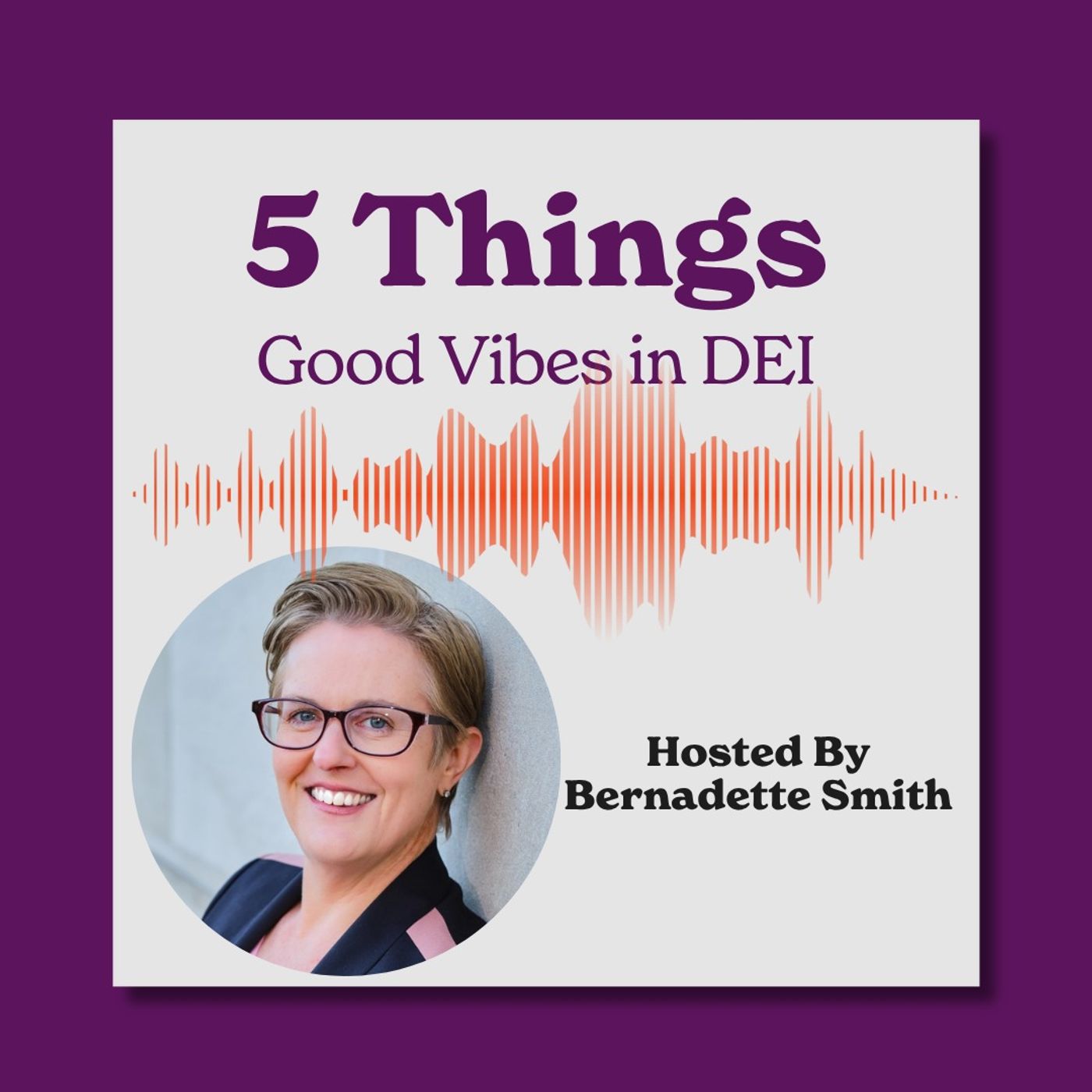
5 Things: Good Vibes in DEI
Bernadette Smith
The Art Of Imperfect Adulting
Amy Stone
Business as UNusual
BiCurean Consulting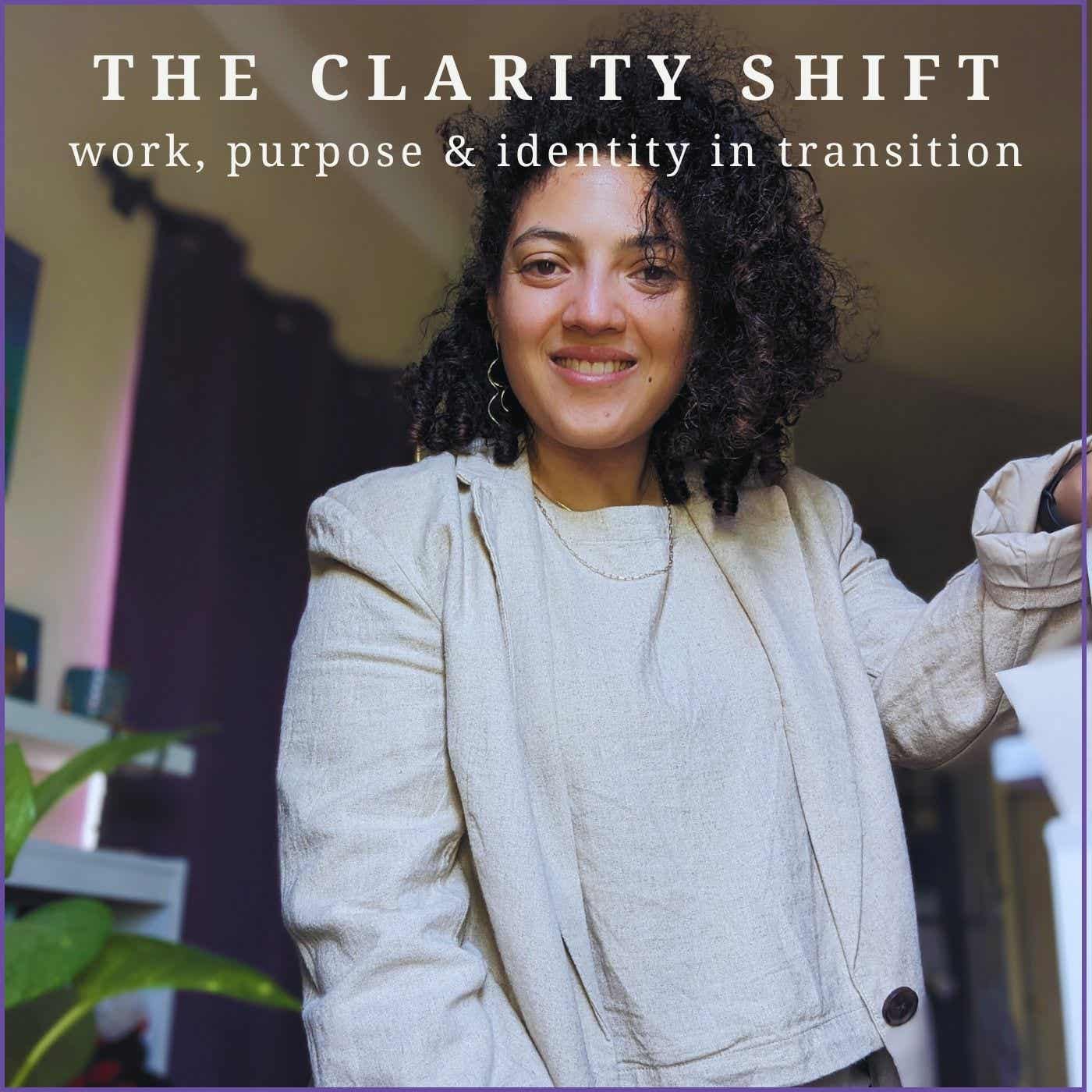
The Clarity Shift
Miriam Raquel Sands | Clarity + Alignment
Cozy Conversations with The Sister Project
Lauren Massarella and Michelle Anderson
Departure Menopause: Neurodivergent-Affirming & Weight-Inclusive Care
Melinda Staehling
The Empress and The Fool
Sarah Dittmore & Kaitlyn Gulock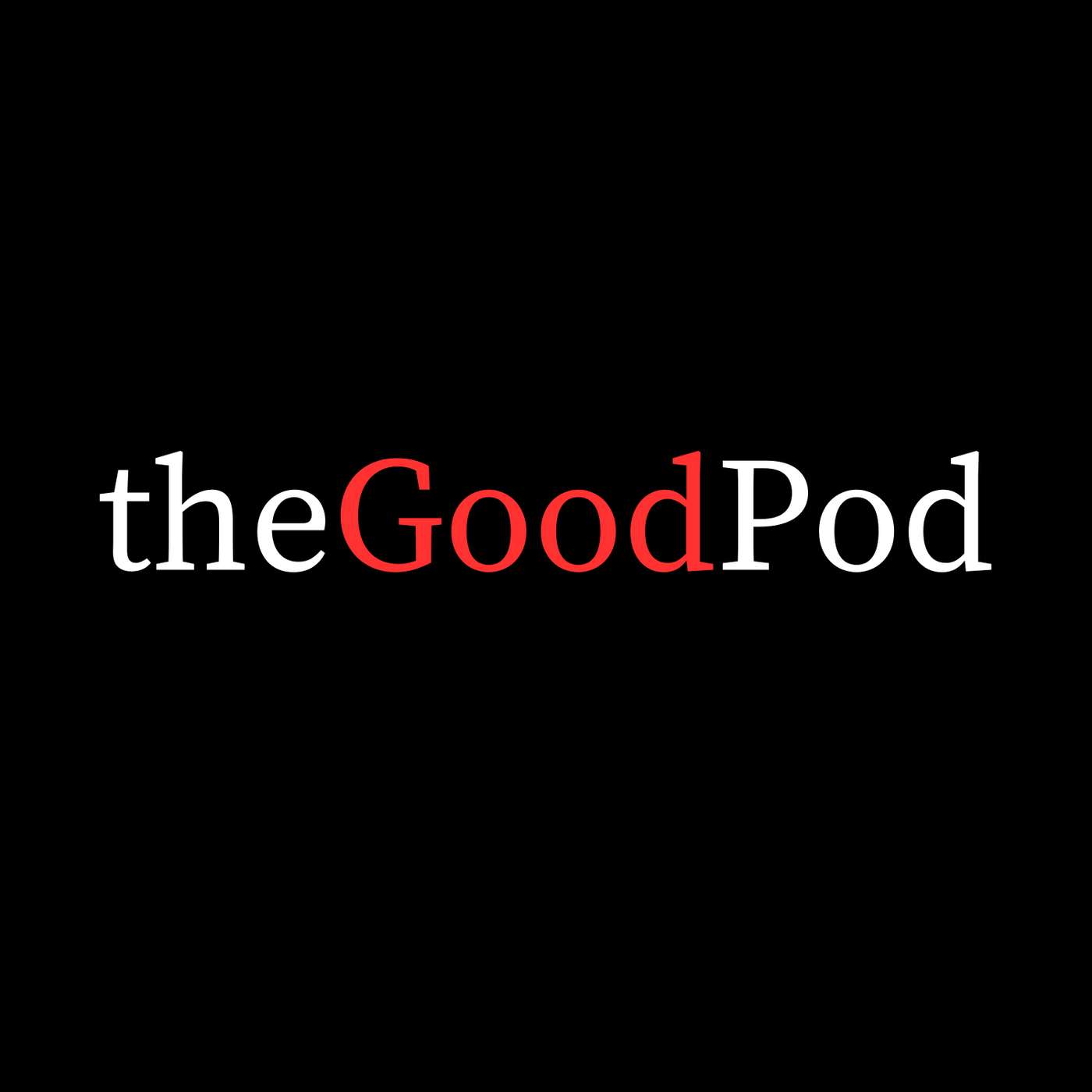
The Good Pod
Jason Reed and Marissa Garza
Gratitude Geek
Kandas Rodarte | Gen X Growth Coach for Women Solopreneurs
Mental Health Warrior & Neurodivergent Advocate
Amy D. Taylor | Mental Health Warrior & Neurodivergent Advocate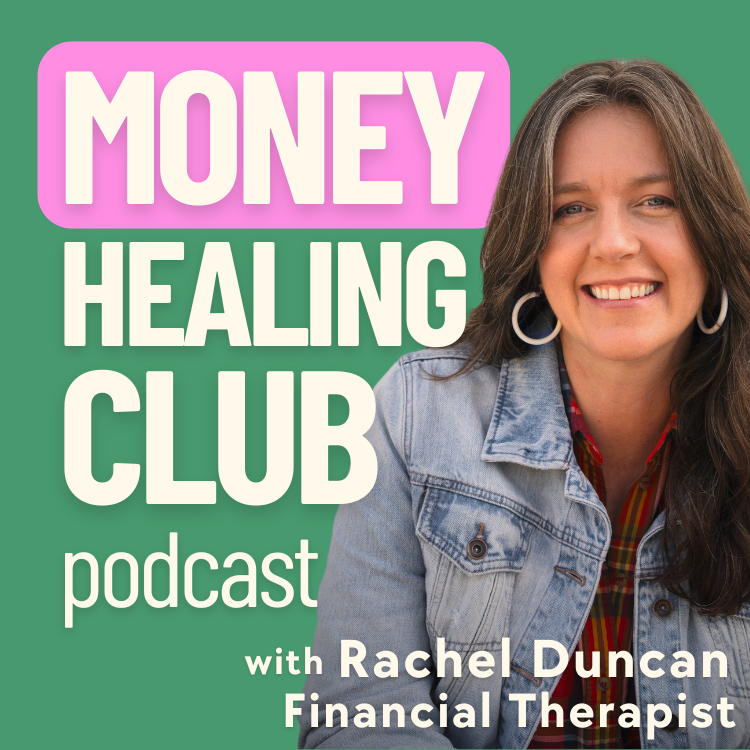
Money Healing Club Podcast
Rachel Duncan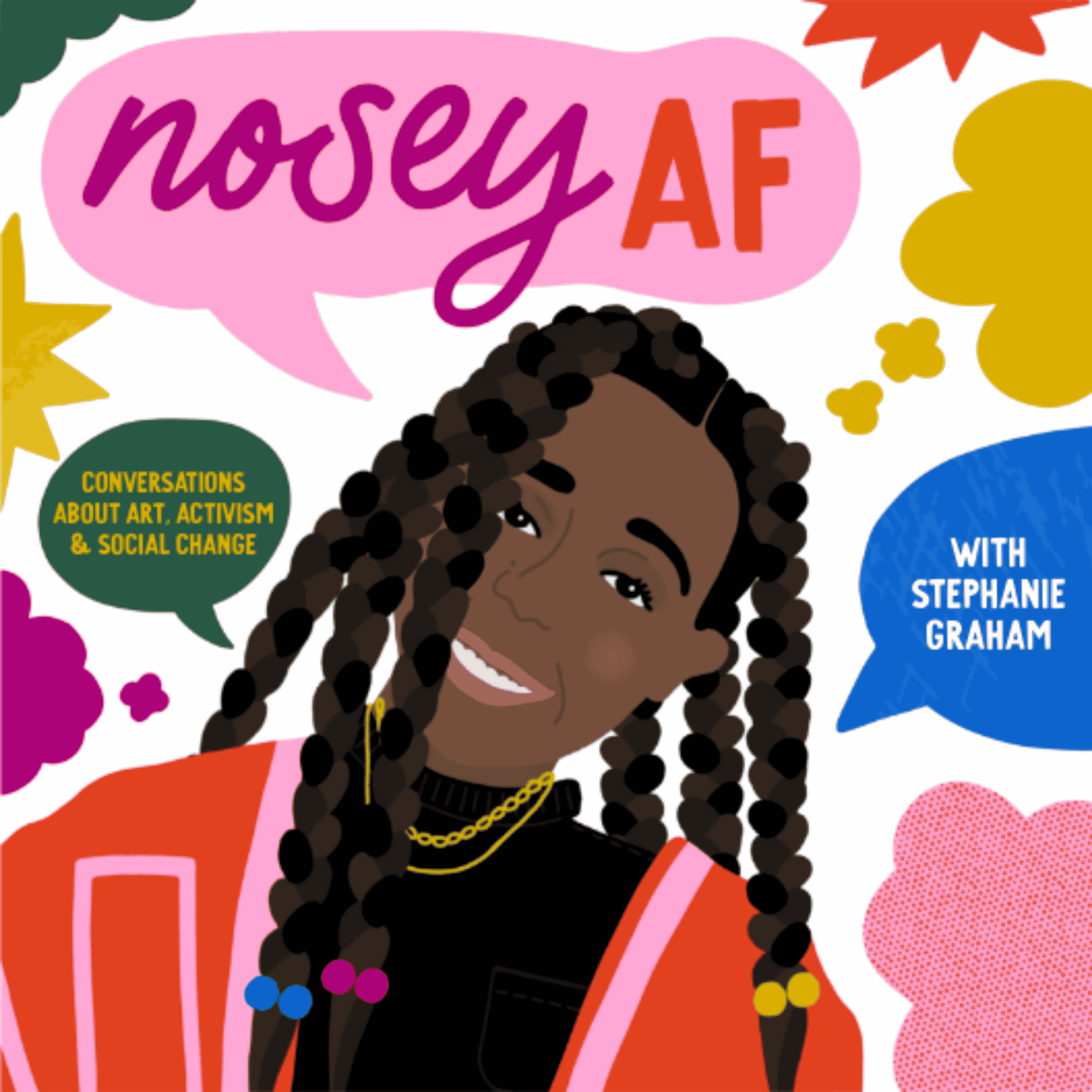
noseyAF: Conversations about Art, Activism, and Social Change
Stephanie Graham
The RestLab with Jordan Maney
Jordan A. Maney
Was It Chance?
Alan Seales, Heather Vickery & Broadway Podcast Network
White Homework
Tori Williams Douglass, Benjamin Faye
Playing Big with Lindsay Johnson
Lindsay Johnson, The Radical Connector






